Project Inspiration: Featured Alumni
Ohio Wesleyan University is dedicated to establishing a community focused on the growth and inclusion of every individual. The "Human Mosaic" project boldly celebrates the diverse identities of students and alumni, working towards the creation of an equitable and diverse community.
OWU is home to a vibrant tapestry of intersecting identities. Specific alumni are highlighted for their commitment to inclusion, equity, embracing personal identities, and continued inspiration for the OWU community.
Helen Kim (Kim Hwal-Lan), Class of 1924
Dr. Helen Kim was a Korean feminist, born in Incheon, South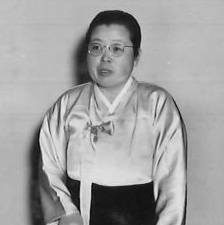 Korea in 1899. She completed her primary and secondary education at Ewha Hakdang College, graduating in 1918. Kim traveled to the United States to study at Ohio Wesleyan University, graduating in 1924. She then went on to get her master's degree from Boston University in 1925 and her PhD from Columbia University in 1931. Dr. Helen Kim was the first Korean woman to receive her doctoral degree. Dr. Kim passed away in 1970 at the age of 71.
Korea in 1899. She completed her primary and secondary education at Ewha Hakdang College, graduating in 1918. Kim traveled to the United States to study at Ohio Wesleyan University, graduating in 1924. She then went on to get her master's degree from Boston University in 1925 and her PhD from Columbia University in 1931. Dr. Helen Kim was the first Korean woman to receive her doctoral degree. Dr. Kim passed away in 1970 at the age of 71.
Dr. Kim is known for being a pioneering feminist, educator, and political activist. She returned to Korea to serve as Dean of Ewha College from 1931 until 1936 when she was appointed President of Ewha College. During her tenure at Ewha, Dr. Helen Kim developed the school into the largest women's university in the world at the time, renamed Ewha University in 1945. She retired from her role as Ewha's president in 1961. In 1948, Dr. Kim was appointed as South Korea's director of public information, where she served concurrently as Ewha's president. In 1950, she established the Korea Times, Korea's first English newspaper. Kim served as Korea's government spokesperson and publisher of the Korea Times during the Korean War.
Dr. Kim's other notable accomplishments include founding Korea's national Young Women's Christian Association (YWCA), attending over 50 international conferences as a Korean delegate and speaker, serving as the Korean delegate to the United Nations on five separate occasions, and being a leading figure of the New Women's Movement. Kim was awarded five honorary doctorate degrees by U.S. universities and was given honorary U.S. citizenship twice. In 1963, Dr. Helen Kim was awarded the Order of Cultural Merit by the Korean president.
Some consider Kim a controversial figure because of her involvement in pro-Japanese activities during the Japanese occupation of Korea (1910-1945). During the Second World War, Kim prioritized women's education over nationalism, encouraging students to support the Japanese and encouraging students to persuade the men in their lives to join the Japanese war effort. In 2013, Ewha University students peacefully protested and demanded the removal of a statue of her on Ewha's campus.
However, Dr. Kim's actions and pragmatism were consistent with the missionary policies of the United Methodist Church, justifying her actions as necessary to keep Ewha open under the harsh Japanese colonial policies. The Japanese occupied Korea for 35 years, meaning most of Kim's adult life was spent under Japanese influence. In a 1946 speech after the Japanese occupation had ended, Kim said, "We were now Koreans. We did not have to be Japanese anymore. Maybe you do not understand the implications of this. If you cannot be what you are, it is the worst curse in the world." Dr. Kim's lifelong career in education and social activism highlights the complexity of the period and the difficult balancing act of interweaving ideals of nationalism, feminism, and imperialism.
Hü King Eng, Class of 1888
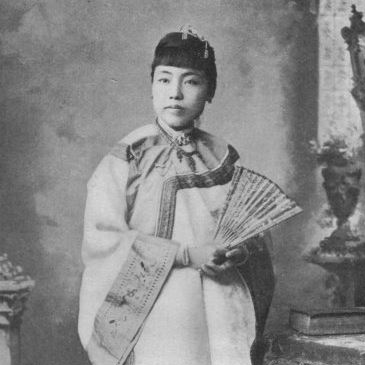
Dr. Hü King Eng was a Chinese physician born in Fuzhou, China, in 1865. She began her education in China at the Foochow Woman's Hospital under American physician Sigourney Trask. In 1884, Hü came to the United States to continue her education at Ohio Wesleyan University. After graduating from OWU in 1888, Hü began studying at the Women's Medical College of Philadelphia. Hü returned to China in 1890 due to illness, returning to the U.S. in 1892.
Dr. Hü King Eng earned her M.D. in 1894. Dr. Hü was the second Chinese woman to study medicine in the United States. She worked at the Philadelphia Polyclinic for a year but soon returned to China and began working at the Foochow Hospital for Women and Children in 1895. In 1899, she was appointed resident physician at the Woolston Memorial Hospital. Under Hü's direction, the hospital grew dramatically, from treating 1,837 cases in 1899 to 24,091 in 1910. She also trained two medical students, including her younger sister, between 1899 and 1901. Hü remained at Woolston Memorial Hospital until 1927, when the hospital was burnt down. She moved to Singapore with her younger sister, where she died in 1929.
Dr. Hü is remembered for being the second female Chinese medical student in the United States. She was an excellent physician, educator, and leader throughout her career. She is also known for her singing and writing talents, gracing many with her songs and poems. Ohio Wesleyan awarded her an honorary M.S. for her accomplishments.
Willa Player, Class of 1929
Dr. Willa Beatrice Player was an African American educator and civil rights activist. Born in Jackson, Mississippi in 1909. She moved with her family to Akron, Ohio, in 1917, where upon graduating high school in 1925, she began attending Akron University. Player quickly transferred to Ohio Wesleyan University to be with her sister, Edith, graduating in 1929. Notably, during her time at OWU, she was not permitted to stay in the dorms on campus due to policies of segregation. She earned her master's from Oberlin College in 1930. In 1935, she earned a Certificat D'Etude from the University of Grenoble in France, and in 1948, she earned her PhD from Columbia University. Dr. Player played a significant role in the civil rights movement and achieved many "firsts" throughout her career. She was the first African American woman to serve as a Trustee at Ohio Wesleyan. Dr. Willa B. Player passed away in 2003 at the age of 94.
After graduating from OWU, Player started teaching in the Akron public school system, where she became the district's first African American teacher. Willa Player soon began teaching Latin and French at Bennett College in Greensboro, North Carolina, in 1930. Her tenure lasted 36 years in various positions before she finally ascended to the role of University President in 1955. In doing so, Dr. Player became the first female president of Bennett College and the first African American woman in the country to serve as the president of a liberal arts institution.
During her time at Bennett, Player supported students active in the Civil Rights Movement. In 1958, she arranged for Rev. Martin Luther King Jr. to speak at Bennett. This speech sparked the 1960 Greensboro Sit-Ins and protests. Bennett students and faculty joined the protests, many of whom were arrested. At the peak of the demonstrations, around 40% of Bennett's student body was in jail. Dr. Player supported her students, visiting them daily and arranging for professors to hold classes for jailed students. Player's support of her students was instrumental for the Bennett Belles and the Civil Rights Movement.
In 1966, Dr. Willa B. Player resigned from Bennett to serve as the Director of the Division of College Support in the Department of Health, Education, and Welfare until her retirement in 1986. In 1962, Player was appointed President of the National Association of Schools and Colleges of the Methodist Church. She was active in many other organizations, including the National Commission on Religion and Race of the Methodist Church and the Commission of Liberal Learning of the American Association of Colleges. She served on the board of trustees for Ohio Wesleyan University, Clark College, and the Southern Fellowship Fund. Player has been awarded eight honorary degrees for her influential work. Dr. Willa B. Player is remembered for her instrumental role in the Civil Rights Movement and unwavering commitment to her students.
Ryan Haddad '15

Ryan Haddad is a queer, disabled actor and playwright who primarily writes and performs autobiographical plays. He was born in 1992 and attended Ohio Wesleyan University to study theatre and creative writing, graduating in 2015. Haddad has cerebral palsy, but he doesn't allow his disability to stand in the way of his dreams. In an interview with Playbill, he said,"'Disability is not a bad thing. It's just a fact of life. For many of us, it's a cultural identity that we're very proud of.'"
Haddad's love for acting began when he was a child, and he began taking acting classes at the age of seven. He performed in school plays and community theater productions throughout his childhood. His family supported his passion, and they have performed multiple backyard performances over the years. He began writing autobiographical plays while at OWU, inspired by Nora Ephron's personal essays, and encouraged by his mentor Tim Miller.
Ryan Haddad has written and performed several of his autobiographical plays, including Hi, Are You Single? and Dark Disabled Stories. Each of these shows explores his experiences living as a queer, disabled person. He has also appeared on television in The Politician, Madam Secretary, Bull, and A Murder at the End of the World. His writings have been published in American Theatre, the New York Times, and Out Magazine. Haddad has received several awards, including IAMA Theatre Company's Shonda Rhimes Unsung Voices Playwriting Commission and Rising Phoenix Repertory's Cornelia Street American Playwriting Award. He is an alumnus of The Public Theatre's Emerging Writers Group and a former Queer Art Performance and Playwriting Fellow. Ryan Haddad returned to OWU in 2019 to perform his solo play Hi, Are You Single? for the Sagan National Colloquium.
Iman Rahamn '93
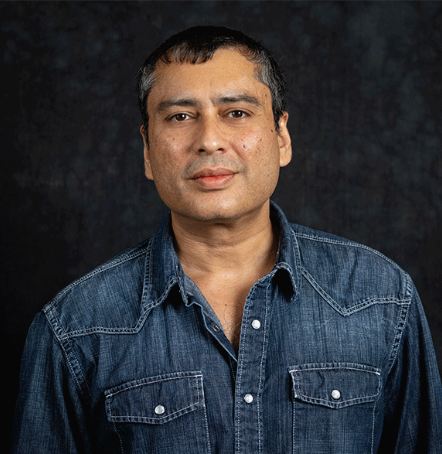
Imad Rahman is a Pakistani-American author and educator born in Karachi, Pakistan. He came to the United States to study at Ohio Wesleyan University, graduating with his B.A. in English in 1993. He earned his master's degree from Ohio University in 1998 and his MFA from the University of Florida in 2001.
Imad Rahman published his first book in 2004, I Dream of Microwaves. It is a comedic collection of connected short stories about a Pakistani-American actor. Interview Magazine and Writer's Digest named him a Breakout Author for his debut novel, which was named a 2004 Best Book by The Journal News. He has published several other short stories, including All Roads Lead to Flesh and Bone, Petty, and The Brigadier-General Takes His Final Stand, by James Butt. His short story Eating, Ohio earned a Special Mention in the 2005 Pushcart Prize anthology. He was also the 2001-2002 James C. McCreight Fiction Fellow at the University of Wisconsin-Madison. Imad Rahman is currently a professor of creative writing at Cleveland State University, where he also directs the annual Imagination Writers Workshop & Conference.
Andreas Duarte '65
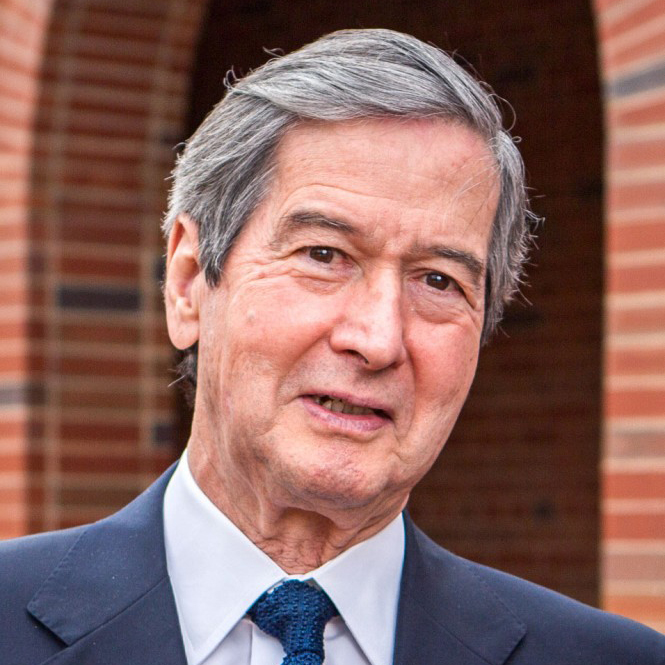
Andres Duarte is a Venezuelan-American businessman and entrepreneur born in Caracas, Venezuela, in 1943. Duarte arrived at Ohio Wesleyan in 1961 to study geology and economics, with plans to join Venezuela's oil industry. He graduated from OWU in 1965 and went to graduate school at Oklahoma State University, earning his MS in geology in 1967, and at Northwestern University and IESA Venezuela, where he earned his MBA in 1969. In 1999, Duarte earned an MA in international affairs from Tufts University.
Andres Duarte returned to Venezuela in 1969, where he began working as a field geologist. He started his first business, Duarte Vivas & Asociados (DVA), in 1974. His company focuses on shipping and logistics. Since its inception, Duarte has grown his business, acquiring other businesses and assets, including ports, shipping fleets, and more. His trading company has been successful in the maritime sector, holding strong despite Venezuela's 2010 economic crash. His business has since expanded into Ecuador and Bolivia.
For his accomplishments, Duarte has received many awards and recognitions, including a graduate fellowship from the Shell Oil company and a Distinguished Achievement Citation from Ohio Wesleyan University. He joined the Venezuelan High Commission for border control and development of reciprocal interests with Colombia in 1988. In 1990, he began serving as vice president of the Venezuelan American Chamber of Commerce Board. In 2017, Andres Duarte was named an Officer of the Most Excellent Order of the British Empire.
Andres Duarte has served his Ohio Wesleyan community throughout his career, recruiting over 100 Venezuelan students to OWU and offering practical learning opportunities through his business ventures. Duarte is a Life Trustee of OWU, returning in 2017 to speak at the commencement ceremony.
Masa Nakayama, Class of 1916
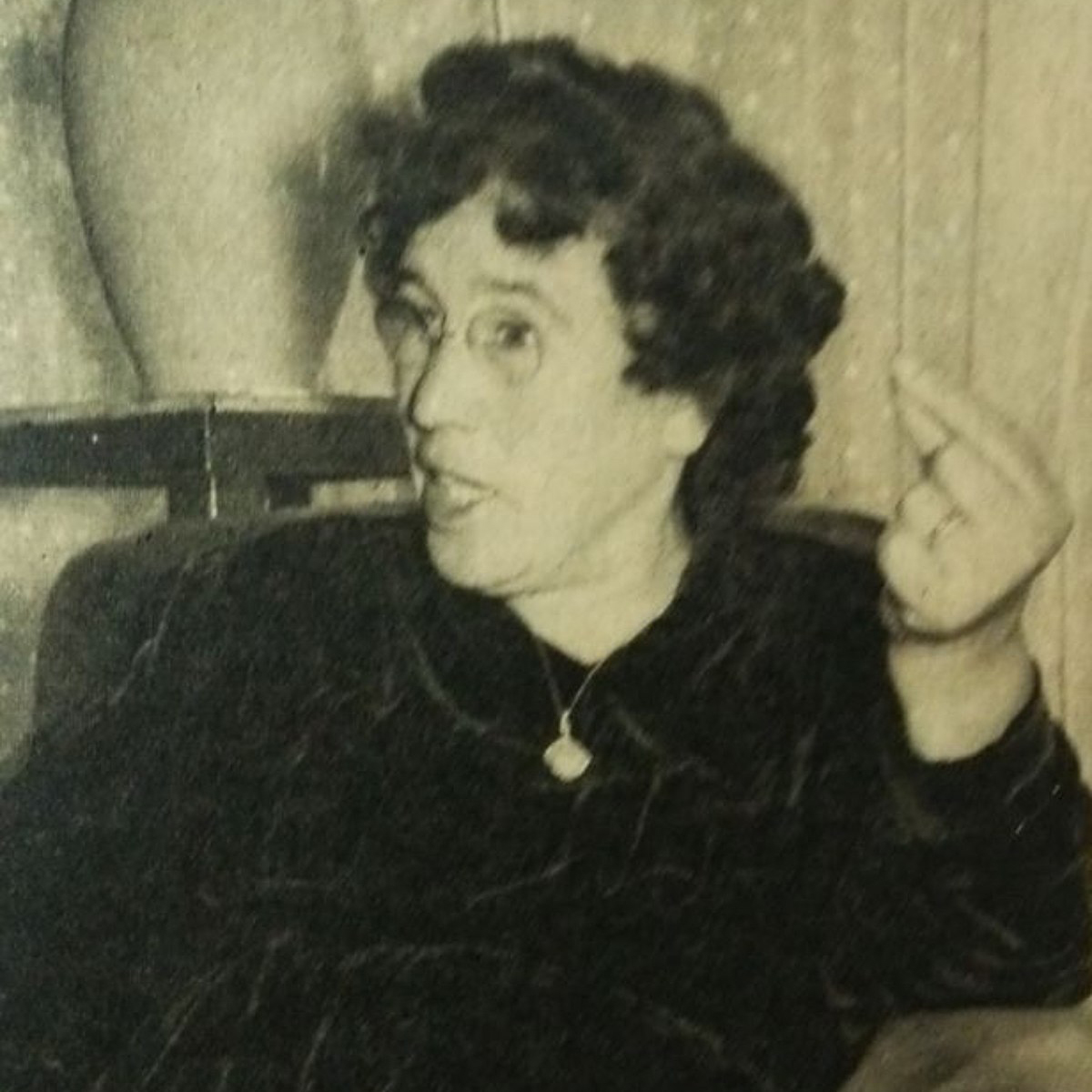
Masa Nakayama was a Japanese educator and politician born in 1891 in Nagasaki, Japan. Nakayama came to the United States to study at Ohio Wesleyan University, graduating in 1916. She returned to Japan to work as a high school and college educator. In 1947, she was elected to the Japanese House of Representatives. In 1950, Nakayama returned to Ohio Wesleyan and was awarded an honorary doctorate law degree. In 1960, she became the first woman appointed to the Cabinet of Japan, serving as the Minister of Health and Welfare for five months before stepping down. Masa Nakayama passed away on October 11, 1976, in Osaka, Japan.
Kenyon Farrow '97
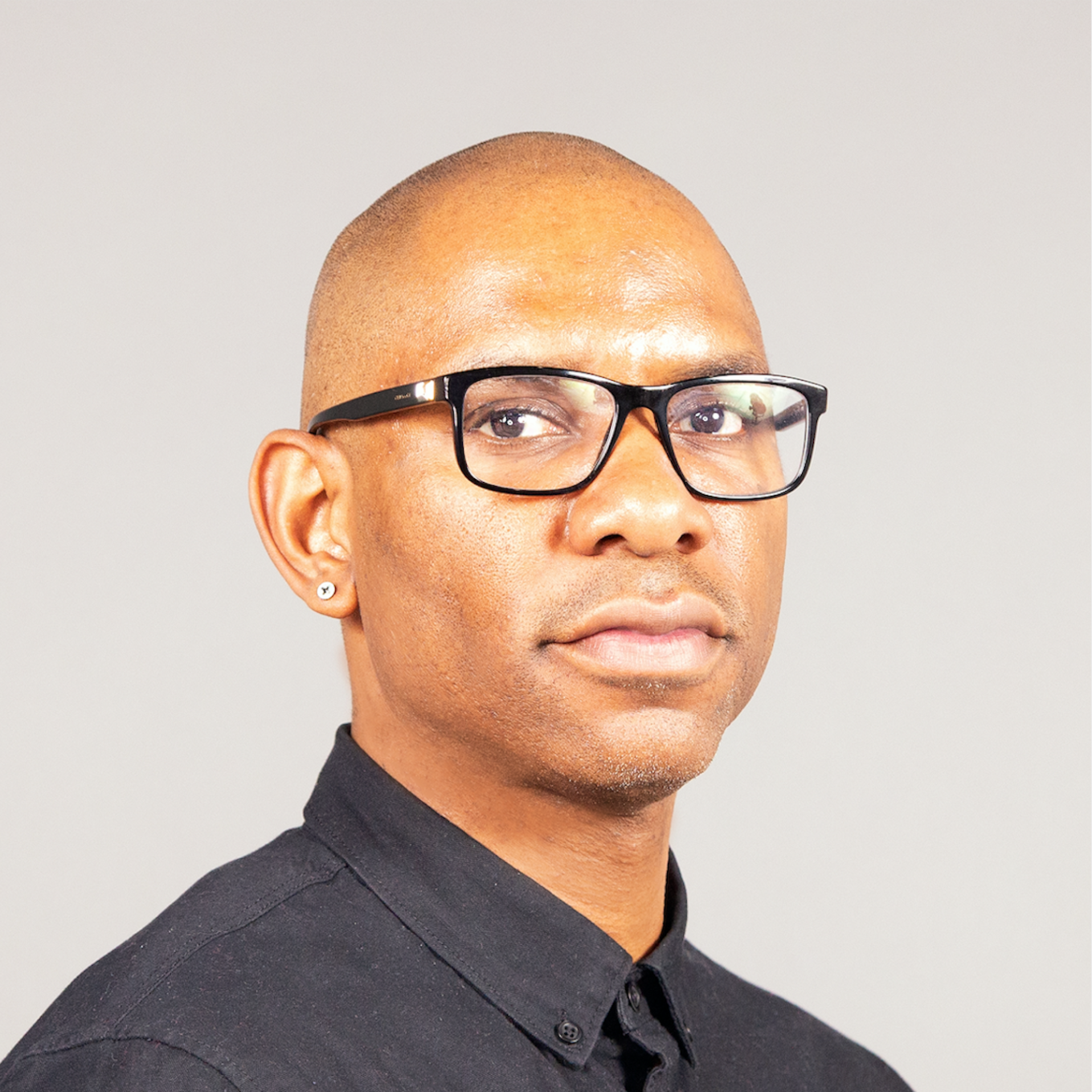
Kenyon Farrow is a queer Black writer and activist. Born in Cleveland, Ohio, in 1974, Farrow attended Ohio Wesleyan University, graduating in 1997 with a BA in theatre. He moved to New York City in 1999 and began playing the role of James Baldwin in Mr. Baldwin Goes to Heaven. He was extremely moved by the death of Amadou Diallo and soon decided that his acting career was not as relevant as the events going on around him, so he began his career in writing and activism.
Farrow earned his MA from the City University of New York in 2007. Kenyon Farrow is best known for his activism for LGBTQ+, HIV/AIDS, civil rights, and incarceration.
He began his activism as a founding member of an organization called FIERCE!, defending queer youth in New York City. He has since worked in various roles for numerous advocacy organizations, including director of communications for the Community HIV/AIDS Mobilization Project, institute fellow for the National Gay & Lesbian Task Force, and executive director for Queers for Economic Justice. In 2013, he began working for the Treatment Action Group as the U.S. and global policy director & communications director, overseeing the organization's policy agenda for HIV, TB, and Hepatitis C. More recently, Kenyon Farrow has continued his advocacy, working for organizations such as Partners for Dignity & Rights, PrEP4All, Point Source Youth, and AVAC: Global Advocacy for HIV Prevention.
Kenyon Farrow is also a prolific writer on many topics, such as race, homophobia, healthcare, and more. His articles have appeared in national papers and magazines, including The Atlantic, Out Magazine, The American Prospect, HuffPost, and more. He has also appeared on national news outlets such as NPR, PBS News Hour, Democracy Now, and more, discussing marriage equality, AIDS/HIV advocacy, and racial equality. Farrow has spoken at dozens of universities and national conferences, advocating for democracy, LGBTQ+ rights, HIV/AIDS prevention, and racial inequality.
The accomplished writer and activist has earned many accolades, including being listed among Out Magazine's OUT 100, POZ Magazine's POZ 100, and The Advocate's 40 under 40. In 2011, Black Entertainment Television named him a Modern Black History Hero. Farrow also received the 2013 Community Activist Award from Chicago Black Pride, the 2016 Sexual Freedom Award from the Woodhull Institute, the 2019 Flamethrower Award from the Red Door Foundation, and was a 2017 Black, Gifted, and Whole Foundation honoree. Kenyon Farrow continues his work advocating for racial & marriage equality and HIV/AIDS prevention.
Melvin Van Peebles, Class of 1953
Melvin Van Peebles was a Black filmmaker, writer, actor, 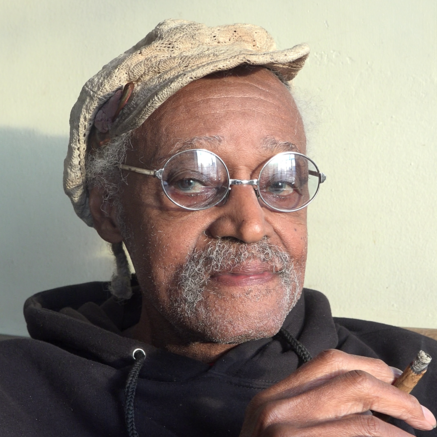 composer, and artist born in 1932 in Chicago, Illinois. Van Peebles earned his BA in English from Ohio Wesleyan University in 1953. Soon after, he enlisted in the U.S. Air Force and served as a navigator and bombardier for three and a half years. Van Peebles was a true Renaissance man who spent his career writing and creating masterpieces. Melvin Van Peebles passed away on September 21, 2021, at the age of 89.
composer, and artist born in 1932 in Chicago, Illinois. Van Peebles earned his BA in English from Ohio Wesleyan University in 1953. Soon after, he enlisted in the U.S. Air Force and served as a navigator and bombardier for three and a half years. Van Peebles was a true Renaissance man who spent his career writing and creating masterpieces. Melvin Van Peebles passed away on September 21, 2021, at the age of 89.
After serving in the Air Force, Melvin Van Peebles began working as a cable car operator in San Francisco, which inspired him to write his first book, The Big Heart. In 1957, Van Peebles created his first two short films, Sunlight and Three Pick-Up Men for Herrick. As an amateur filmmaker, Van Peebles knew little about film production and overlooked details during the production process, forcing him to learn quickly and adapt to challenges. After shooting these films, he tried to find work in Hollywood, but nobody wanted to hire him. So, he moved to Europe, living in the Netherlands and then France.
During his time in France, Van Peebles established himself as a writer and filmmaker, working on short films, such as Les Cinq Cent Balles (500 Francs), and as an investigative journalist. In this period, Melvin Van Peebles wrote and published four novels, a short story collection, and plays, including La Fete a Harlem, which he would later adapt into a musical Don't Play Us Cheap. Van Peebles also created his first feature film, The Story of a Three-Day Pass, which earned the Critic's Choice Award at the 1967 San Francisco Film Festival.
After the success of his first film, Melvin Van Peebles moved back to the U.S. to direct and compose the score for the 1970 comedy Watermelon Man. He then independently produced, directed, wrote, and scored his 1971 film, Sweet Sweetback's Badasssss Song, which he also starred in. Van Peebles wrote and composed the musical Ain't Supposed to Die a Natural Death, which ran on Broadway for two years and was nominated for several Tony awards, including Best Musical, Best Original Score, and Best Book of a Musical. He also released several studio albums, including Brer Soul and Ghetto Gothic.
Melvin Van Peebles' work was critically acclaimed, and he earned many awards, including Drama Desk Awards' Most Promising Book, multiple Grammy and Tony nominations, and a Daytime Emmy. He also received a Humanitas Prize for The Day They Came to Arrest the Book. In 1976, he was inducted into the Black Filmmakers Hall of Fame. He received the Chicago Underground Film Festival's Lifetime Achievement Award and was an Honoree at the 2022 Equal Justice Awards. The French Legion of Honour named Melvin Van Peebles Commander of the Legion of Honour in 2001.
Ohio Wesleyan University honored Van Peebles with a Distinguished Achievement Citation in 1993. Ohio Wesleyan's biennial Melvin Van Peebles Symposium honors the life and legacy of Melvin Van Peebles, whose decades-long artistic career broke boundaries and redefined the meaning of art.
Charles Thomas, Class of 1906
Dr. Charles Thomas was a Black dentist and baseball player, 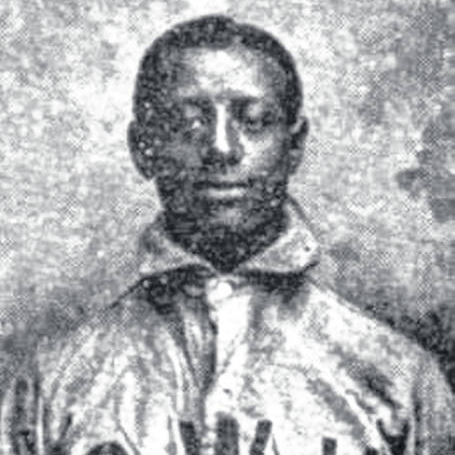 born in Weston, West Virginia, in 1881. Thomas' family moved to Zanesville, Ohio, when Thomas was three, and he graduated from Zanesville High School in 1902. Afterward, he attended Ohio Wesleyan University, where he played on the football and baseball teams, becoming the school's first Black player on any sports team. He graduated from OWU in 1906 and went to dental school at The Ohio State University, graduating in 1908. Dr. Thomas began working as a dentist in St. Louis, Missouri. He later moved to New Mexico, establishing a practice in Albuquerque, becoming one of the state's first Black dentists. He is said to be Branch Rickey's inspiration for signing Jackie Robinson to the Dodgers, breaking the MLB's color barrier. Dr. Charles Thomas passed away in 1971 at the age of 90.
born in Weston, West Virginia, in 1881. Thomas' family moved to Zanesville, Ohio, when Thomas was three, and he graduated from Zanesville High School in 1902. Afterward, he attended Ohio Wesleyan University, where he played on the football and baseball teams, becoming the school's first Black player on any sports team. He graduated from OWU in 1906 and went to dental school at The Ohio State University, graduating in 1908. Dr. Thomas began working as a dentist in St. Louis, Missouri. He later moved to New Mexico, establishing a practice in Albuquerque, becoming one of the state's first Black dentists. He is said to be Branch Rickey's inspiration for signing Jackie Robinson to the Dodgers, breaking the MLB's color barrier. Dr. Charles Thomas passed away in 1971 at the age of 90.
During his time at OWU, Charles Thomas played fullback on the football team and was the star catcher on the baseball team. He quickly grew close with Branch Rickey, who had encouraged Thomas to join the school's baseball team. Despite being the first Black player on any of OWU's sports teams, Thomas was welcomed by his teammates. His reception by other teams & fans was often negative. Thomas often endured racial slurs shouted at him while on the field. Some teams would refuse to play against OWU with Thomas on the roster. Thomas tried not to let the hatred phase him and excelled on the field, achieving a batting average of 0.321 during his three years of OWU baseball.
The most notable incident of racism occurred at a hotel in 1903. While the OWU baseball team was traveling to play Notre Dame, the Grand Hotel in South Bend, Indiana, refused to register Charles Thomas as a guest because of his race. Branch Rickey advocated for Thomas, who was allowed to sleep on a cot in Rickey's room. Later, Rickey found Thomas in their room weeping and saying, "It's my skin. If I could just tear it off, I'd be like everybody else." This event and similar injustices Thomas faced were etched into Rickey's mind.
Over forty years later, in 1947, Branch Rickey signed Jackie Robinson with the Dodgers, ending segregation in the MLB. In doing so, he kept his promise of change to Charles Thomas. Rickey cites the South Bend incident in an interview with the Associated Press saying, "I vowed that I would always do whatever I could to see that other Americans did not have to face the bitter humiliation that was heaped upon Charles Thomas."
After leaving Ohio Wesleyan, Thomas played baseball for the Columbus Black Tourists and the Philadelphia Giants in segregated leagues. Dr. Charles Thomas lived a fulfilling life and serves as a symbol of hope, talent, and fulfilled promises.
